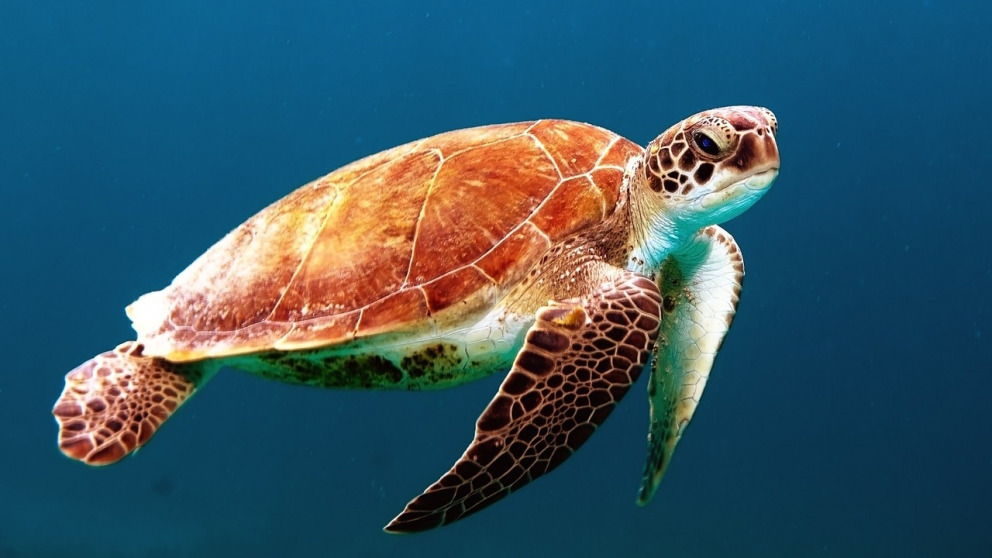UN Negotiations on the Protection of the High Seas: Policy Brief Makes Recommendations for Regional Governance
26.09.2018
The exploitation of marine areas beyond national jurisdiction (ABNJ) is regulated by the UN Convention on the Law of the Sea. It rules that fishing rights, prospecting rights, and other uses are subject to international law. However, the Convention does not adequately address the issue of how to conserve species and habitats in these areas. That situation may be about to change: Negotiations on a new international agreement to protect biodiversity in areas beyond national jurisdiction – and support the UN sustainable development goals in the process – got under way in September. Researchers from the IASS were present at the negotiations and have now published a Policy Brief with recommendations for the proposed agreement.

“The existing international rules don’t go far enough to ensure the conservation and sustainable use of the high seas,” says Sebastian Unger, who leads research on Ocean Governance at the IASS. The use of the oceans and their resources is regulated by the internationally binding UN Convention on the Law of the Sea. States draw on the Convention to determine their national waters, which extend up to 200 nautical miles from their coastlines into the sea, and they enjoy exclusive rights to use the marine resources contained within that zone. But over 60 per cent of all marine areas form part of the high seas, those areas beyond national jurisdiction. To date, no international mechanism exists, which would, for example, facilitate the creation and adminstration of marine protected areas. Furthermore, there is currently no legal obligation to carry out environmental impact assessments before undertaking activities in these areas. Access to and the use of high seas genetic resources are also not regulated. A robust international agreement and stronger regional governance are therefore essential for the conservation and sustainable use of marine biodiversity on the high seas.
We now have a window of opportunity to move forward with this process: By resolution of the General Assembly, UN member states began negotiations on an international, legally binding instrument to conserve biodiversity in areas beyond national jurisdiction in September. The negotiations, which are due to be concluded in two years’ time, should culminate in the first ever legally binding framework for the conservation and sustainable use of the high seas.
Need for greater coordination between different marine conservation actors
Marine conservation efforts are still hampered by a lack of cooperation between different sectors, such as the shipping and fishing industries. Regional and sectoral organisations and instruments play an important role here, but they hardly ever coordinate their work. The success of any future agreement will, however, depend on overarching cooperation between international, regional and sectoral institutions and actors. “That’s why it’s so important that the new high seas agreement is also supported by existing sectoral and regional agreements and institutions,” emphasises Carole Durussel, Co-Lead of the project Strengthening Regional Ocean Governance for the High Seas (STRONG High Seas), which is funded by the International Climate Initiative and coordinated by the IASS. In this project, researchers are working together with decision-makers and civil society actors in the South-East Atlantic and the South-East Pacific regions to develop new regional approaches to high seas conservation. They all have high hopes for the new agreement. If we manage to define, in an internationally binding agreement, how the various global and regional decision-making levels and institutions are connected, then there will be a far greater chance of protecting marine ecosystems and ensuring healthy oceans for current and future generations. “Regional organisations in South-East Atlantic and South-East Pacific states have recognised that there is a need to strengthen marine policies on the conservation and sustainable use of biodiversity, not just in their own waters, but also on the high seas,” says Ben Boteler, Co-Lead of the STRONG High Seas project.
Intended as a guide for the negotiating parties, the latest Policy Brief by researchers in the STRONG High Seas project identifies and recommends concrete options for introducing universally applicable standards and improving international cooperation.
Key Messages
1. Regional ocean institutions, processes and coordination mechanisms should play a significant role in advancing the conservation and sustainable use of marine biodiversity in ABNJ by contributing to improved global governance of the ocean. Achieving and using this potential at the global level will require a new enabling UNCLOS implementing agreement.
2. Successful cross-sectoral cooperation in conserving biodiversity in ABNJ requires a common goal or purpose and overarching set of principles, shared between managing bodies as well as transparent, participatory, and inclusive decision-making and coordination, and appropriate distribution of competence between the global and regional/sectoral levels. Such elements should be included in an international agreement for marine biodiversity in ABNJ (“BBNJ agreement”).
3. Lessons learnt, expertise and capacity from the regional and sectoral levels can guide the development of provisions in a new BBNJ agreement to ensure that the future implementation of a new BBNJ agreement will be effective and adapted to the reality of its implementation in the ocean governance landscape.
4. The regional and sectoral levels can underpin global standards established in a new BBNJ agreement by developing, implementing and enforcing regionally or sectorally based agreements. This allows them to consider the specificity of the region, its challenges and needs, as well as go beyond the standards established by a new BBNJ agreement.
Gjerde, K., Boteler, B., Durussel, C., Rochette, J., Unger, S., Wright‚ G., ‘Conservation and Sustainable Use of Marine Biodiversity in Areas Beyond National Jurisdiction: Options for Underpinning a Strong Global BBNJ Agreement through Regional and Sectoral Governance’, STRONG High Seas Project, 2018.
